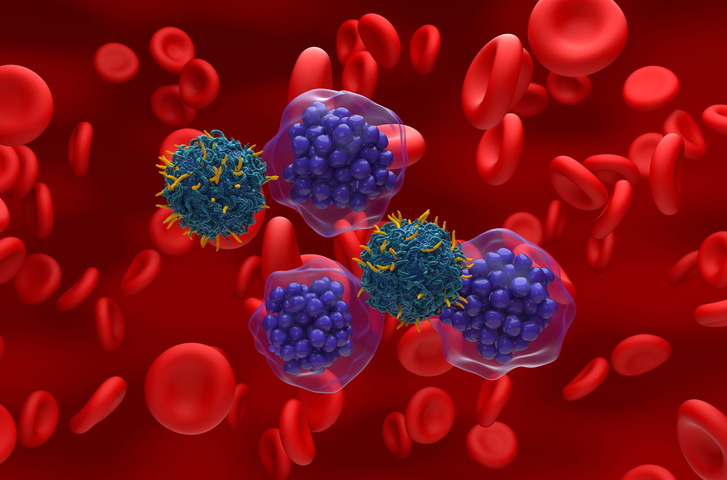
A new study suggests a novel regulatory axis that drives RNA splicing dysregulation may contribute to the progression of chronic lymphocytic leukemia (CLL).
Yiming Wu, PhD, and Meiling Jin, PhD, of the City of Hope National Comprehensive Cancer Center and colleagues conducted the research and published their findings in Blood Cancer Discovery.
They conducted the research because “spliceosome mutations leading to aberrant splicing occur in [approximately] 20% of patients” with CLL, but the “mechanism for splicing defects in spliceosome-unmutated CLL cases remains elusive.”
The researchers conducted an integrative transcriptomic and proteomic analysis. They discovered that “proteins involved in RNA splicing are post-transcriptionally upregulated in CLL cells, resulting in splicing dysregulation.”
Furthermore, the study showed the “abundance of splicing complexes is an independent risk factor for poor prognosis.”
The researchers also found that increased splicing factor expression was “highly correlated with the abundance of METTL3,” which is an RNA methyltransferase that deposits N6-methyladenosine (m6A) on messenger RNA.
“METTL3 is essential for cell growth in vitro and in vivo and controls splicing factor protein expression in a methyltransferase-dependent manner through m6A modification-mediated ribosome recycling and decoding,” they concluded. “Our results uncover METTL3-mediated m6A modification as a novel regulatory axis in driving splicing dysregulation and contributing to aggressive CLL.”
Reference
Wu Y, Jin M, Fernandez M, et al. METTL3-mediated m6A modification controls splicing factor abundance and contributes to aggressive CLL. Blood Cancer Discov. 2023;4(3):228-245. doi:10.1158/2643-3230.BCD-22-0156






 © 2025 Mashup Media, LLC, a Formedics Property. All Rights Reserved.
© 2025 Mashup Media, LLC, a Formedics Property. All Rights Reserved.